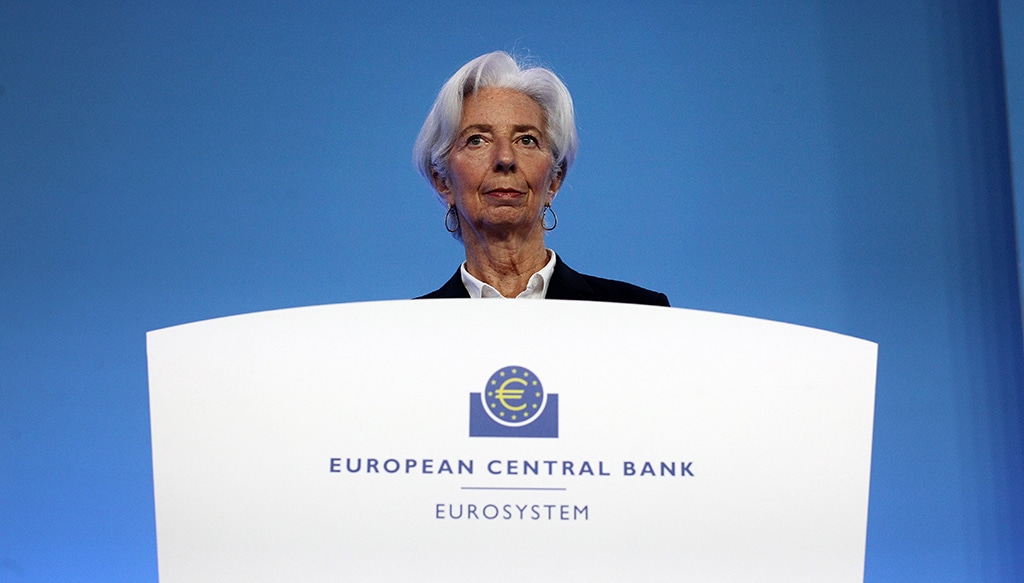FRANKFURT: The European Central Bank is expected to follow the US Federal Reserve's lead on Thursday and opt for a smaller interest rate hike, analysts said, on signs that red-hot inflation is finally easing. The ECB has been hiking rates at what president Christine Lagarde has called "the fastest pace ever" to bring down record-high inflation after Russia's war in Ukraine sent food and energy costs soaring. But following two straight increases of 75 basis points, policymakers in Frankfurt are tipped to downshift to a 50 basis-point rate hike in their final meeting of 2022.
Analysts say policymakers may point to the latest inflation data to justify a slower pace, which showed eurozone consumer prices unexpectedly decelerating in November for the first time in 17 months, to 10 percent.
The early Christmas present could "take away some of the urgency to continue with jumbo rate hikes", said ING bank economist Carsten Brzeski, even if a 75-basis-point hike is "still on the table". The ECB's chief economist Philip Lane hinted at a slightly less aggressive pace last week when he said it was "likely we are close to peak inflation".
And although more rate increases would be needed to return inflation to the bank's two-percent target, Lane said "a lot has been done already". A half-point move would mirror the action taken by the US Federal Reserve on Wednesday, after four previous 75-point hikes.
In a key week for central bankers, Ipek Ozkardeskaya, senior analyst at Swissquote Bank, predicted "a deluge of 50 basis-point hikes", with the Bank of England likely opting for its own half-point rise on Thursday. The BoE had in early November announced its biggest hike in 33 years to fight sky-high inflation that it warned was pushing Britain into a recession that could last until mid-2024.
Recession fears
Central bankers around the world are walking a fine line between raising borrowing costs to cool inflation, without dampening demand so much it triggers an economic downturn. The ECB's three main interest rates are currently sitting in a range of between 1.5 and 2.25 percent.
The bank's next rate move will be guided by the latest economic forecasts, to be released on Thursday, including its first-ever inflation estimate for 2025. The new forecasts are also expected to show the eurozone economy contracting in the final quarter of 2022 and first quarter of 2023 -- meeting the technical definition of a recession.
But analysts say the winter recession could be a mild one, in part thanks to European governments unleashing massive support packages to steer households and businesses through the energy crisis. Berenberg Bank economist Holger Schmieding urged the ECB not to "overdo its response to inflation", warning that further aggressive rate hikes could make the recession "even more painful".
ECB policymakers will also be taking a close look at wage growth in weighing their next steps, although analysts say the dreaded "wage-price spiral" has not yet materialised in the eurozone. Lagarde however may face questions at her afternoon press conference on the ECB's own rumbling pay dispute, after staff voiced unhappiness over a proposed below-inflation salary increase in January.
Excess liquidity
In line with its monetary policy tightening, the ECB will on Thursday shed more light on plans to slim down the bank's massive balance sheet. It has already toughened the terms of an ultra-cheap bank loan scheme, aimed at keeping credit flowing during the pandemic, in a bid to incentivise early repayment of so-called TLTRO loans.
The move appears to be paying off, with eurozone lenders handing back around 750 billion euros ($790 billion) in TLTRO cash since October. Analysts are also eager to hear how and when the ECB plans to start shrinking its five-trillion-euro bond portfolio, after years of hoovering up government and corporate debt.
The ECB has already indicated that the process of "quantitative tightening"-letting the bonds mature or actively selling them-would be gradual and predictable to avoid spooking financial markets. - AFP











